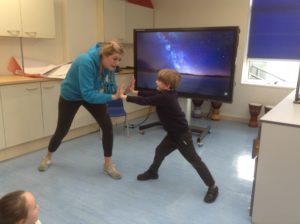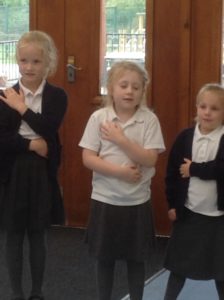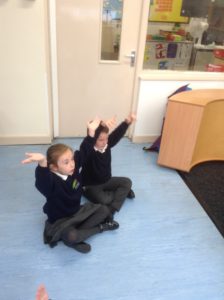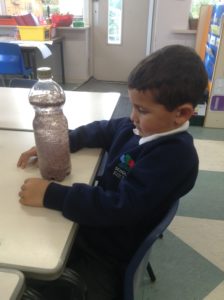Attendance matters
Posted on 22 October 2017 by Mr Roundtree
The first half-term of this school year has seen a slight drop in attendance compared to the same period last year. Nevertheless, attendance at Scholes (Elmet) Primary continues to be high – many thanks for your support.
- Autumn 1 last year 97.7%
- Autumn 1 this year 97.2%
What about each class? Well, a big well done to pupils (and parents/carers!) in Year 5 and Year 6 – attendance for the three oldest classes is all above the school average. Equally impressive is attendance for pupils in Miss Eckersley’s Reception class and Miss Parling’s Year 1 class – great stuff!
- F2M: 98.1%
- F2L: 96.9%
- 1K: 98.4%
- 2KL: 96.8%
- 1/2V: 96.1%
- 3/4C: 96.8%
- 3/4E: 96.5%
- 3/4P: 95.9%
- 5/6C: 98.3%
- 5/6F: 98.4%
- 5/6M: 97.5%
Our new Head of School...
Posted on 20 October 2017 by Mr Roundtree
…is Miss Karen Hague!
As you will know, Miss Hague has been Head of School since January, having taken over from Mr Payling.
A recruitment process to find a permanent Head of School culminated yesterday, Thursday 19 October, in Miss Hague’s appointment.
The recruitment was rigorous. Three governors were involved as well as me, the Head of Federation. Also involved was a headteacher from another Leeds school in order to provide an external viewpoint. The selection process involved four different activities relating to teaching and learning and school leadership. The final decision was tough because all the candidates were strong.
Thank you to all the people who applied, particularly those who were shortlisted to attend the recruitment day. Particular thanks – and well done – to Miss Hague herself.
Miss Hague has the deepest respect from all staff and pupils in school, and I know parents also respect and support her.
She and I are looking forward to continuing to make sure Scholes (Elmet) Primary keeps getting better and better.
It's the half-term holidays...
Posted on 20 October 2017 by Mr Roundtree
…and so there’s no specific homework next week. This is in-line with our Homework Policy.
During the half-term, please encourage your child to read each day, even if just for 15 minutes. As well as their current book, reading comics, newspapers, websites are all good – and why not take a trip to the library!
It would also be really helpful to help your child brush up on their times tables. Children in Year 2 should know x2, x5 and x10 (and the related division facts) by the end of the year – so give them a head start now! By the end of Year 4, children should know all their tables up to 12 x 12 (and the related division facts).
And make sure they enjoy the break, too: perhaps an autumn walk, a day out, a trip to the cinema… There are lots of things going on in Leeds – check them out.
Whatever you get up to, we’re looking forward to seeing you again on Monday 30 October.
New Maths teacher for KS2
Posted on 19 October 2017 by Mrs Quirk
At Scholes (Elmet) Primary, our intake each year has been 40; this recently increased slightly to 45. The small increase actually benefited in many ways, the biggest benefit being that we could re-organise classes so they avoid crossing over important key stages, such as a Reception/Year 1 mix and a Year 2/Year 3 mix.
We’ve had mixed age classes for over 20 years. We’re really experienced at planning for mixed age classes, and we feel that they can actually benefit all children’s learning in most subjects.
However, the new Maths curriculum lends itself naturally to single-aged year groups. Schools across Leeds are finding that mixed age classes in Maths curriculum challenging to plan for. This is because some learning objectives are quite different – far more than in other subjects. (In fact, the National Curriculum for Reading and Writing is planned around the phases we have at school: Y3,4 expectations are set out together, for example.)
Because of the difficulties in Maths, we are adopting a new system as a trial for the rest of this year. We have recruited an excellent teacher with lots of experience, especially in Maths, to act as a fourth teacher within each Key Stage 2 phase for Maths. This means that we will have two (mixed ability) Maths classes in Year 3, in Year 4, in Year 5 and in Year 6.
The new Maths groups will mean class groups for maths will be smaller. This might provide added benefits including pupil feedback on how they’re learning can be enhanced. Research shows this can have a positive impact on progress.
This is an initiative that we are going to monitor closely for the rest of the year. It’s not a guaranteed long term solution (especially when school budgets are ever-decreasing), but it’s something we want to try out to keep getting better.
The new groups begin on Monday 30 October.
Drop in sessions for parents/carers
Posted on 19 October 2017 by Mrs Quirk
The EPOSS Cluster supports parents, children and young people from the schools in Wetherby, Boston Spa and surrounding villages. This includes Scholes (Elmet) Primary School.
The support offered includes:
• Support managing unwanted or challenging behaviour at home.
• Emotional wellbeing.
• Support for anxious children.
• Support with areas of difficulty such as bedtimes or mealtimes.
• Advice for parents.
• Signposting to other support agencies.
The team are holding a drop-in session on WEDNESDAY 01 NOVEMBER from 2.00pm to 3.30pm at school.
The team contains a range of professionals including outreach workers, an art therapist and a counsellor that work together to identify and provide the most appropriate advice and support for all families.
We look forward to welcoming you!
Mindfulness
Posted on 19 October 2017 by Mrs Latham
We recently experienced an interactive performance from One Day Creative. The performance was called Let’s Talk About It and was aimed at encouraging children to deal with, and talk about, problems including difficult emotions, worries and cyber safety.


We followed this up with individual class workshops. We looked at situations and responses and how mindfulness exercises can be a ‘superpower’ that helps us make good choices when it comes to our responses.
The messages were powerful and hopefully useful for all children.





2KL class assembly
Posted on 19 October 2017 by Mrs Quirk
We’re looking forward to the 2KL class assembly tomorrow. If your child is in Mrs Wilkins/Miss Lowry’s class, come and share in your child’s exciting learning, and listen to what they’ve been doing in class! The assembly is taking place on Friday 20 October at 3pm. Parents and carers with children in this class are welcome to attend. Check out our calendar to find out the assembly dates for other classes.
A big thank you...
Posted on 17 October 2017 by Mrs Quirk
We were delighted to receive an email from the Salvation Army this morning……
I’m writing to say a big thankyou for your very generous donation of harvest produce and tinned food. John said he really enjoyed the celebrations last Friday and was most impressed with the children’s contributions.
As you know we rely on such donations to carry on with our community outreach which is I’m afraid more in demand than ever.
Please pass on our grateful thanks to all those involved and in particular the children and their parents.
Mrs Allaway's class assembly
Posted on 29 September 2017 by Mrs Quirk
Come and share in your child’s exciting learning, and listen to what 3/4P have been doing in class! Mrs Allaway’s class assembly is taking place on Friday 06 October at 3pm. Parents and carers with children in this class are welcome to attend. Check out our calendar to find out the assembly dates for other classes.
Join in afternoon with 1/2V
Posted on 29 September 2017 by Mrs Quirk
Parents, carers, grandmas, grandads, aunties and uncles of children in Mrs Latham’s class have the opportunity to come into school next week to get creative. Our first Join In afternoon is taking place on 02 October – just come to the school office for 1.30pm, and get ready to help create something amazing!